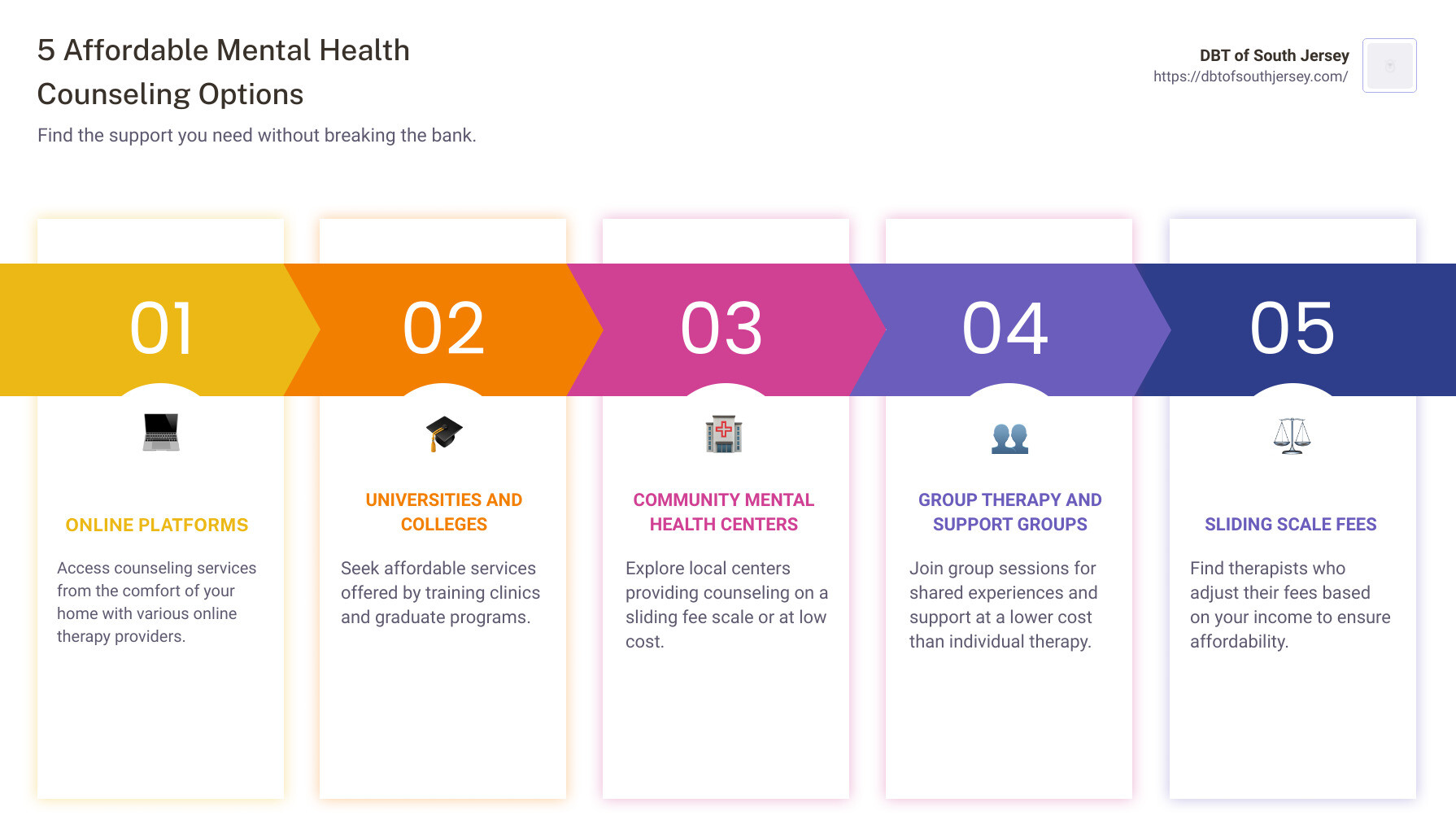In the ever-evolving landscape of mental health treatment, various therapeutic approaches have emerged to cater to the diverse needs of individuals grappling with emotional and psychological challenges. Dialectical Behavior Therapy (DBT) stands out as an innovative and effective approach that has gained significant recognition in recent years.
This blog aims to shed light on what DBT is and how it can make a profound difference in enhancing mental health.
What is Dialectical Behavior Therapy (DBT)?
Dialectical Behavior Therapy, developed by psychologist Dr. Marsha M. Linehan in the late 1980s, originated as a treatment for individuals with borderline personality disorder (BPD).
However, it has since proven to be valuable in addressing a range of mental health issues. DBT combines cognitive-behavioral techniques with elements of mindfulness, incorporating both acceptance and change strategies.
Core Principles of DBT:
- Dialectics: DBT operates on the principle of dialectics, which emphasizes the integration of opposing concepts. The therapy encourages individuals to balance acceptance and change, acknowledging that both are essential for personal growth.
- Mindfulness: Central to DBT is the cultivation of mindfulness skills. Practicing mindfulness involves staying present in the moment without judgment, fostering self-awareness and reducing impulsivity.
- Distress Tolerance: DBT equips individuals with skills to navigate distressing situations without resorting to harmful coping mechanisms. This involves learning to tolerate and survive intense emotions without escalating the situation.
- Emotion Regulation: Understanding and managing emotions is a key aspect of DBT. This skill helps individuals identify, label, and effectively cope with their emotions, promoting emotional well-being.
- Interpersonal Effectiveness: Building and maintaining healthy relationships are crucial components of mental health. DBT teaches individuals how to communicate assertively, set boundaries, and navigate social interactions effectively.
Target Populations for DBT
While initially developed for individuals with borderline personality disorder, DBT has demonstrated efficacy across various mental health conditions. It is commonly used in the treatment of:
- Borderline Personality Disorder (BPD): DBT remains a primary treatment for individuals diagnosed with BPD, helping them manage intense emotions, impulsive behaviors, and challenges in interpersonal relationships.
- Substance Use Disorders: DBT has been adapted for individuals struggling with substance abuse issues, providing them with coping mechanisms to address cravings, regulate emotions, and prevent relapse.
- Eating Disorders: The principles of DBT are increasingly applied in the treatment of eating disorders, assisting individuals in managing the emotional aspects associated with these conditions.
- Depression and Anxiety Disorders: DBT’s focus on mindfulness and emotion regulation makes it beneficial for individuals dealing with depression and anxiety, helping them build resilience and cope with distress.
- Post-Traumatic Stress Disorder (PTSD): DBT techniques are employed to address the emotional dysregulation and interpersonal difficulties often experienced by individuals with PTSD.
How DBT Works:
Individual Therapy Sessions
- In DBT, individuals typically engage in weekly one-on-one therapy sessions with a trained therapist. These sessions provide a safe space to explore personal challenges, set goals, and work on specific skills.
Skills Training Groups
- DBT includes skills training groups where individuals learn and practice the core DBT skills in a structured setting. These groups typically cover mindfulness, distress tolerance, emotion regulation, and interpersonal effectiveness.
Phone Coaching
- To enhance the application of learned skills in real-life situations, DBT often includes phone coaching. Individuals can reach out to their therapists for brief phone consultations when faced with challenging situations.
Consultation Team
- Therapists providing DBT often participate in consultation teams to ensure they are delivering the therapy effectively. This collaborative approach allows therapists to support each other in providing the best care for their clients.
Effectiveness of DBT
Numerous studies have demonstrated the effectiveness of DBT across various mental health conditions. Research indicates that individuals undergoing DBT experience significant improvements in emotional regulation, interpersonal functioning, and overall well-being. The structured nature of DBT, with its combination of individual therapy, skills training groups, and additional support, contributes to its success in helping individuals achieve lasting positive changes.
Reduction in Suicidal Behaviors
- One of the notable outcomes of DBT is its effectiveness in reducing suicidal behaviors. Individuals with a history of self-harm or suicidal ideation often experience a decrease in these tendencies after participating in DBT.
Improved Emotion Regulation
- DBT’s emphasis on emotion regulation skills has been linked to reduced emotional intensity and improved ability to manage distress. This is particularly beneficial for individuals with mood disorders or conditions characterized by emotional dysregulation.
Enhanced Interpersonal Relationships
- The interpersonal effectiveness skills taught in DBT contribute to improved relationships. Individuals learn to communicate more effectively, set boundaries, and navigate conflicts, leading to healthier connections with others.
Long-Term Impact
- DBT’s holistic approach, addressing both acceptance and change, contributes to long-term improvements in mental health. Many individuals continue to apply the skills learned in DBT even after the formal treatment period, leading to sustained positive outcomes.
Incorporating DBT into Your Mental Health Journey:
Seeking a Qualified DBT Therapist
- To benefit from DBT, it is crucial to work with a therapist who is specifically trained in this approach. Qualified DBT therapists have undergone extensive training to deliver the therapy effectively.
Commitment to Skill Building
- Success in DBT requires a commitment to skill-building. Individuals are encouraged to actively engage in skills training groups, practice mindfulness regularly, and apply learned skills in their daily lives.
Consistent Attendance
- Regular attendance of individual therapy sessions and skills training groups is essential for the effectiveness of DBT. Consistency allows individuals to build a strong therapeutic relationship with their therapist and reinforce the acquisition of skills.
Utilizing Phone Coaching
- Taking advantage of phone coaching is an integral part of DBT. Individuals are encouraged to reach out to their therapists for guidance during challenging moments, reinforcing the application of learned skills in real-time.
Challenges and Criticisms
While DBT has proven effective for many individuals, it is not without its challenges and criticisms. Some common concerns include:
- Time and Resource Intensive
- DBT can be time-consuming and may require a significant commitment of resources, including time and financial investment. This can pose challenges for individuals with busy schedules or limited financial means.
- Applicability to All Disorders
- While DBT has shown efficacy across various disorders, it may not be equally effective for everyone. Some individuals may prefer or respond better to other therapeutic approaches.
- Limited Accessibility
- Access to qualified DBT therapists may be limited in certain geographical areas, making it challenging for some individuals to access this specialized form of therapy.
- Adaptability to Individual Needs
- Critics argue that DBT’s structured nature may not cater to the unique needs of every individual. Some individuals may require a more flexible or tailored therapeutic approach.
Conclusion
Dialectical Behavior Therapy (DBT) has emerged as a transformative approach to mental health treatment, offering a unique blend of cognitive-behavioral techniques and mindfulness strategies. Its effectiveness in addressing a range of mental health conditions, from borderline personality disorder to depression and anxiety, has contributed to its widespread adoption.
While challenges and criticisms exist, the positive outcomes experienced by many individuals undergoing DBT highlight its potential to make a significant difference in the journey toward improved mental health.
Incorporating the principles of dialectics, mindfulness, distress tolerance, emotion regulation, and interpersonal effectiveness, DBT equips individuals with valuable tools to navigate life’s challenges.
The commitment to skill-building, consistent attendance, and the utilization of phone coaching contribute to the success of DBT. As the field of mental health continues to evolve, DBT stands as a testament to the importance of holistic and integrative approaches in fostering lasting positive change.



